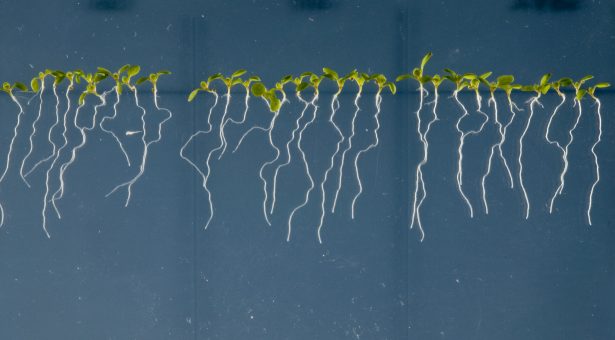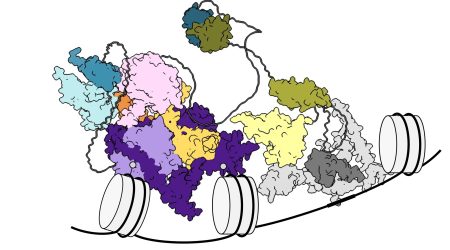Discovery of the nutrient ‘mining machine’ in plants

Scientists from the John Innes Centre and the University of Oxford have discovered which genes control the specialised nutrient mining machine that develops on the surface of plant roots.
Root hairs develop on roots and burrow into the soil releasing acids and other scouring chemicals that crack open rocky minerals releasing valuable nutrients such as iron and phosphate that are necessary for plant growth.
It has long been known that when crops such as barley and wheat are grown on soils containing small amounts of phosphate, those plants with long hairs give higher yields than those with short hairs.
Similarly long-haired beans grown on nutrient poor tropical soils of Central America do much better than short haired varieties.
The mechanism that controls the growth of these nutrient excavating cells has eluded scientists until now.
This week a group of UK-based scientists shed light on the mystery in a paper published in Nature Genetics.
They discovered that a master regulatory gene called RSL4 acts like a switch; hair cells grow when the gene is turned on and growth stops when it is off.
When plants grow in conditions where there is insufficient phosphate they develop very long root hairs. This increases the amount of soil from which they can scavenge phosphate.
“When we discovered that RSL4 was a master regulator of hair growth we thought that perhaps the increased growth of root hairs in low phosphate soils might result from turning this gene on,” says Professor Liam Dolan, leader of the JIC team that discovered RSL4.
Dolan and co-workers were right. Growing plants in phosphate-poor soils turned the gene on resulting in the growth of very long root hairs. This gene is therefore not only a key growth regulator but also a critical cog in the mechanism plants use to cope with a lack of nutrients.
Given the ability of RSL4 increase root hair growth this discovery has the potential to help breeders develop crops that can grow on poor soils.
Most soils in Australia, extensive regions of sub-Saharan Africa and 30% of China are not productive because plants cannot extract sufficient phosphate and iron form these soils.
“Our hope is that in the future someone will be able to use this gene to develop cultivars which enhance yields on poor soils,” says Professor Dolan.
“This could have obvious benefits for developing world agriculture. Also as fertilisers become increasingly expensive we will need crops that are more efficient in nutrient uptake. This could have the added benefit of decreasing the amount of polluting phosphate that runs off into rivers and lakes.”
“What excites me most about this research is that we set out to answer a fundamental question in biology – how organisms control the size of their cells. In the end we discovered something that could have an important impact on world agriculture”.



